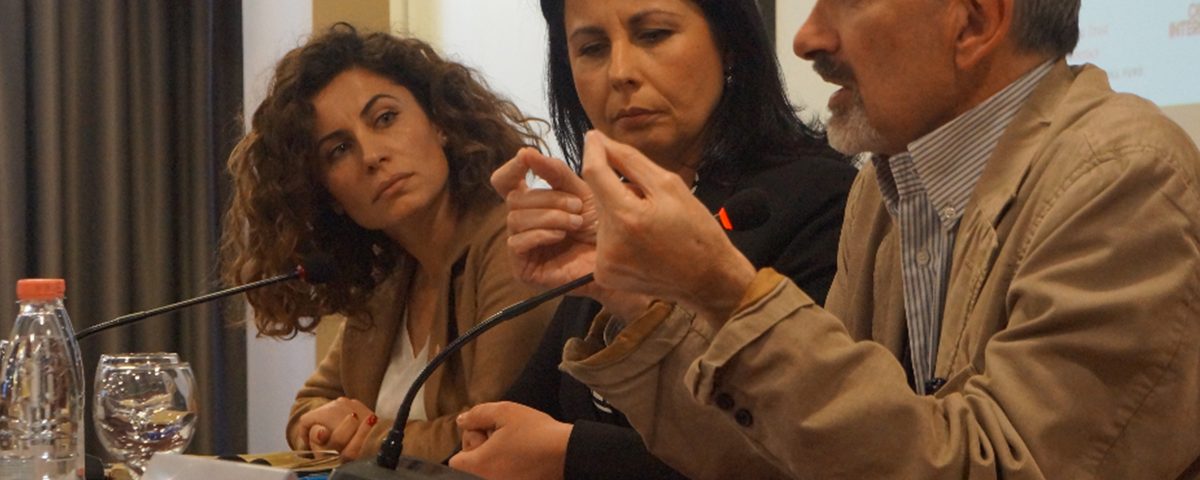Twenty-five years after the collapse of the Albanian communist government, Albania continues to experience the growing pains of a democratic transition. Prior to the implementation of the democratic constitution in 1998, the presence of a strong and active civil society has been a key factor in the democratization of the country. Yet, civil society in Albania has continued to struggle to maintain their significance as advocates for its citizens. Historically civil society has based itself within the center of progressive change in the Balkans region. Some may not find it surprising that the sector has spring-boarded dozens of political careers of former prominent activists. To some, their entry into politics has proven to be controversial, at times even weakening or completely damaging to the organizations left behind. These incidents have also triggered a broader debate about the intersection of politics, civil society and European aid in the region. Still, others argue these cases show the vitality of civil society, validating its influence and its successful penetration into politics.
Historically civil society has based itself within the center of progressive change in the Balkans region.
Nonetheless, the cases of using civil society as a catalyst to push political agendas have shaken many citizens’ belief in civil-society initiatives. This consequently creates the opportunity for those against civil society to disenfranchise and disable productive civil society spaces. In addition, the nuances of the bureaucratic legal and regulatory frameworks have affected civil society’s development and operation. As a result, needed reforms and democratization have been slow to unfold within this political dynamic.
Given the environment, this has yet to stop Partners Albania’s efforts to address the most pressing issues of civil society development and citizen participation. Since its inception, Partners Albania has continuously developed new frameworks for increased cooperation between civil society actors, and both local and national governments. Partners Albania has made strides to integrate change and conflict management by encouraging new models of participatory governance and cooperative planning. Their work has incorporated the utilization of participatory methods to implement current policies and to promote new legislation that legitimizes and sanctions citizen participation processes.
Regardless of the corrupt use of civil society by a few individuals or debased policies, civil society is recognized as an indispensable social partner and will continue to be an integral part of the decision-making process in the country. Given the importance of civil society participation, the Albanian government continues to support their participation with a yearly national conference to address civil society concerns, entitled “Social Partners – Time for Action.”
Civil Society Milestones
Although the “Social Partners – Time for Action” conference provided the door to open dialogue, Partners Albania later led the “Enabling Environment for Civil Society” working group. An assembly of NGO leaders and civil society experts that were in close cooperation with the Prime Minister’s office were reconvened to ensure deliverable actions and progress after the conference. Together with Parliament, the group engaged in a joint process to adapt the necessary strategic documents and national mechanisms for State and civil society partnerships.
The establishment of this cooperative approach between the NGO sector and the government demonstrates that despite their differences, it is possible to develop long-term dialogue with state bodies. As a result of this constructive dialogue, several policies and developments were achieved to advance civil society’s impact:
- “Recognition and Strengthening of Civil Society’s Role in the Democratic Development Process.” The first charter that recognized and established concrete commitments by the Albanian Parliament. The charter was the first documentation to legalize principles of cooperation and to establish accountability for both civil society and Parliament;
- Preparation of a first draft law for the establishment of the National Council for Civil Society, an independent advisory body to the Council of Ministers.
- Adoption of the Law 92/2014 — Value Added Tax in the Republic of Albania, which introduces a series of important, fiscal changes for the improved treatment of civil society organizations. The law provided clarity for the economic activity of nonprofits.
Bridging Politics and Civil Society
Most people in the Balkans regard political leaders as synonymous with greed and incompetence; civil society therefore is playing a vital role for Albanian citizens’ oversight and involvement in government decisions. Overall civil society groups such as NGOs are seen as an important counterbalance to bad government by representing the needs of the people to those in power. In this sense civil society groups have a political purpose, but their credibility often falters due to their proximity to political parties. Likewise, politicians can also be criticized for appearing to align themselves with some in the civil society sector too openly.
However, in order for there to be a thriving and prosperous Albania, civil society, political leaders and government officials must be able to work outside of any one political agenda.
In Albania the roles of politics, government and civil society are often seen as black and white. However, in order for there to be a thriving and prosperous Albania, civil society, political leaders and government officials must be able to work outside of any one political agenda. Partners Albania is demonstrating that this kind of collaboration is possible and can produce better results. The “Enabling Environment for Civil Society” working group has produced concrete policies through a truly participatory process. Ultimately, it will help civil society organizations to consolidate as they continue to play a vital role in a more open and democratic Albania.
Although Partners Albania has helped to establish noteworthy advancements for civil society, there is still much work to be done. NGOs need to continue to be vigilant when it comes to monitoring institutions and the enforcement of new laws that support civil society’s role in a democratic society. Under the auspices of the working group, Parliament will also continue to yearly monitor and measure the progress of civil society’s enabling environment with new and objective revisions for improvement of the sector. Together with local NGOs, Partners Albania is committed to fostering collaborative spaces for ongoing feedback and improvement of the legal framework, and to help oversee the proper implementation of the current laws.




